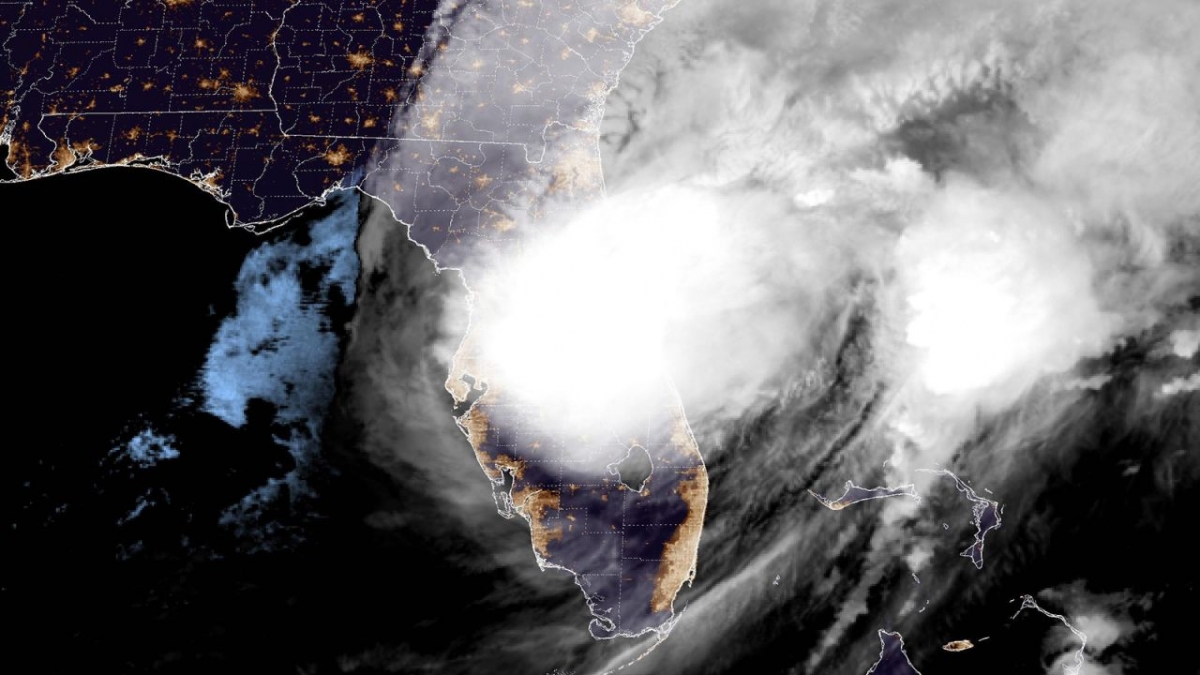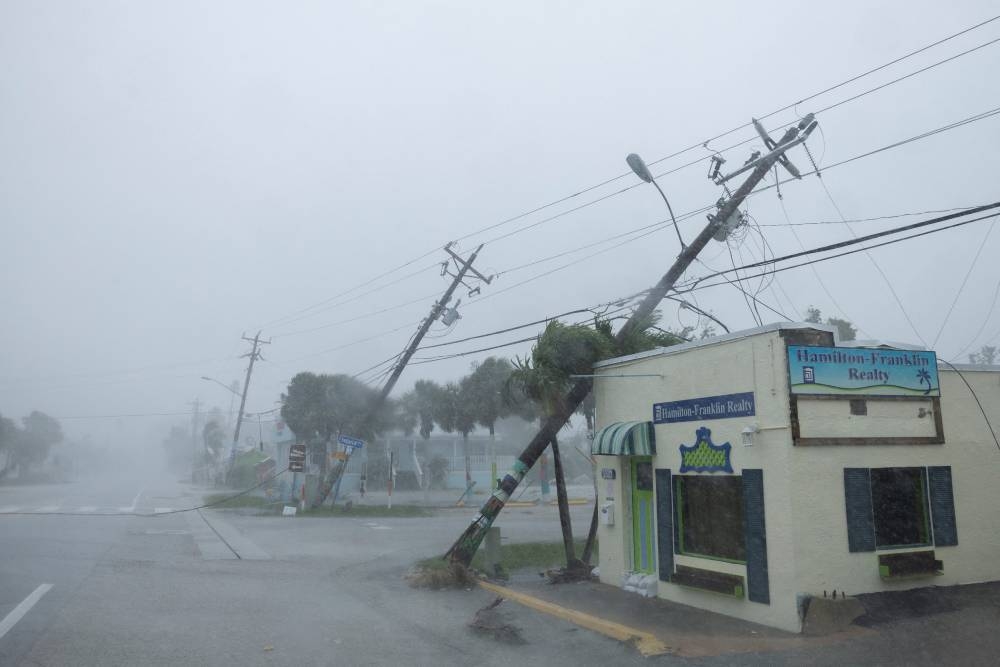According to the latest information, 1.6 million homes and businesses in Florida are without power. The storm has weakened to a Category 2 but is still very dangerous, forecast to cause great devastation in the areas it passes through.

Although Hurricane Milton has weakened to a Category 2 on the 5-point scale, the storm has doubled in size (meaning its catastrophic impact is spreading over a much larger area), becoming an “extremely dangerous major hurricane” with maximum sustained winds of up to 120 mph.
The National Hurricane Center said the storm was dumping heavy rain on the Tampa area, which was under a flash flood emergency. The storm continued to surge where it made landfall. Milton is expected to maintain its strength as it moves across the Florida peninsula and threaten other states on the east coast. Milton could produce storm surges of 9 to 15 feet in some areas and drop rainfall of 6 to 12 inches. The National Weather Service has confirmed at least 16 tornadoes in Florida, with more expected today.
“There will still be damage,” said Sarah Griffin, a meteorologist and research associate at the University of Madison-Wisconsin’s Cooperative Satellite Meteorology Institute. “I know Milton has weakened to a Category 2 and will likely continue to weaken as it approaches the coast. That’s good news. But the problem is Milton is essentially a Category 5 storm. Even as it weakens, it still carries energy, so we’ll see less impact from the winds, which could lessen the impact on land. But we’ll see big waves hitting the coast.”

Forecasted to be the worst storm in more than a century, more than 1 million people in Florida have been ordered to evacuate ahead of Hurricane Milton. Authorities have repeatedly issued dire warnings. US President Joe Biden urged people to follow local safety recommendations, calling it “truly a matter of life and death.”
Major Florida theme parks closed ahead of the storm. Nine hospitals were evacuated. Mobile homes, nursing homes and assisted living facilities faced mandatory evacuation orders. Evacuees clogged highways in many places and people rushed to buy gasoline, causing shortages. In Orlando, many said they had weathered many storms before but were taking unusual precautions, including seeking shelter.
Florida has already provided generators for shelters and arranged fuel reserves. Floridians are facing a double whammy, having been hit by Hurricane Helene just two weeks ago, with 2 million people ordered to evacuate. Both storms are expected to cause billions of dollars in damage. Analysts estimate the global insurance industry will pay out between $60 billion and $100 billion. Milton’s damage is expected to rival Hurricane Katrina in 2005, the costliest natural disaster in U.S. history.
However, experts say that because Milton struck a little earlier and further south than forecast, there is hope that the worst of the disaster may be avoided. No deaths have been reported, but residents are being warned that venturing outdoors could be life-threatening.





